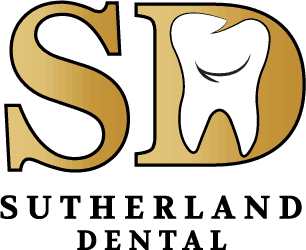A dental implant is a titanium post inserted into the jawbone to replace a missing tooth. Usually, dental implants are placed one at a time, but what if you need multiple teeth replaced? Can all of your implants be placed at the same time? And what about extraction? Can that be done at the same time as implant placement? In this blog post, we’ll explore the feasibility of tooth extraction and implant placement done on the same day. Keep reading to learn more!
1. What is an implant, and what are the benefits over other tooth replacement methods?
An implant is a titanium post that is surgically placed in the jawbone. Implants offer exceptional benefits over other tooth replacement methods:
- They are permanent and do not need to be removed for cleaning.
- There is no need to remove good tooth structure because they do not rely on nearby teeth for support.
- Implants help to preserve jawbone density and prevent bone loss.
As a result, implants provide a more natural appearance and feel than other options, such as dentures or bridges.
2. What is the process of having a tooth extracted and implanted on the same day?
Having a tooth extracted and implanted on the same day is relatively straightforward:
- The tooth to be extracted is numbed with local anaesthesia.
- The tooth is removed using forceps, taking care not to damage the surrounding teeth. Once the tooth is out, the implant site is prepared by drilling a small hole in the jawbone. The implant is then inserted into the hole and secured with screws.
- A temporary crown is placed on top of the implant to protect it while it heals.
3. How long will it take for my implant to be fully healed and integrated into my jawbone?
After you receive your dental implant, it will take some time to heal and fully integrate into your jawbone. The healing process usually takes several months, although this can vary depending on the individual. Once the implant has healed, your dentist will be able to attach a crown or other restoration. This procedure usually takes a few weeks to complete. In most cases, it will take six to eight months from the initial implant placement until your restoration is complete.
4. Are there any risks or potential complications associated with this procedure?
Every medical procedure carries with it some risk of complications. This is true of even the most routine procedures, such as blood tests or X-rays. The risks are often more significant when it comes to more invasive procedures, such as surgery. However, this does not mean that every individual will experience complications. Most patients will not. The vast majority of medical procedures are performed without incident. That being said, there are always potential risks and complications associated with any medical procedure. These can range from minor side effects, such as bruising or soreness, to more severe complications, such as infection or organ damage. Before undergoing any medical procedure, you must discuss the risks and potential complications with your doctor.
5. What are the costs of having an implant placed, and how does this compare to other tooth replacement methods?
The expenses of dental implants can vary widely, depending on many factors such as the procedure’s location, the surgeon’s experience, and the type of implant used. They are, generally speaking. However, the average cost of a single implant starts from $1,000. This may seem like a lot at first glance, but comparing this figure to the cost of other tooth replacement methods is essential. For example, a traditional denture costs from $500. When you consider the long-term benefits of implants – designed to last a lifetime – it’s clear that they represent a sound investment. Furthermore, many insurance plans now offer coverage for implants, making them more affordable than ever.
Conclusion
Yes, it is possible to extract and implant a tooth on the same day. Many patients find that this approach offers several advantages over traditional dental procedures. If you are considering having a tooth extracted and implanted, be sure to consult with a qualified dentist like those at Sutherland Dental. Our dentists in Sutherland can help you determine if this approach is right for you and answer any questions you may have about the procedure.



